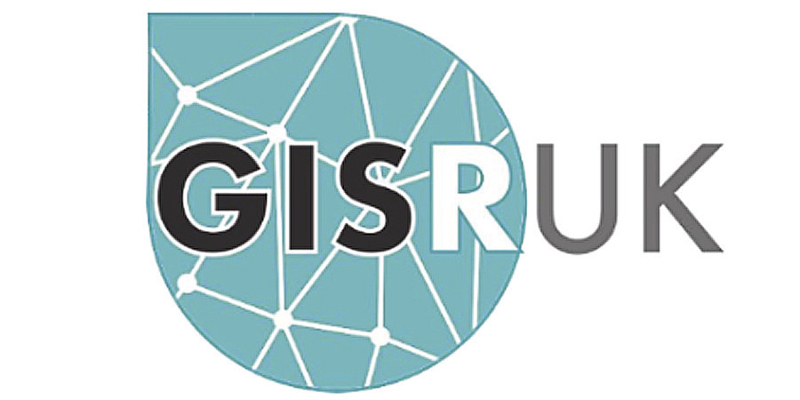James Haworth and Andrea Ballatore review some of the hot topics discussed at this year’s virtual GISRUK Conference

The 21st to 23rd July saw the 28th edition of the Geographical Information Science UK (GISRUK) conference and the first to be run online in the post-COVID-19 world. The theme of this year’s conference was AI and Urban Analytics, a topic brought into stronger focus by the current urgent need for intelligent systems and approaches to deal with the pandemic.
AI has long been of interest to the geospatial community, dating back to the 1990s with Stan Openshaw’s pioneering work on the topic. As geospatial scientists we have always worked with large and complex datasets, whether related to earth observation or human behaviour, so we have naturally gravitated towards AI as a way to deal with this. This has gathered pace in the last few years with the emergence of deep learning and a crystallisation of concepts and techniques centred on the term GeoAI, summarized in keynote speaker Krzysztof Janowicz’s 2019 paper on the topic (https://www.tandfonline.com/doi/full/10.1080/13658816.2019.1684500).
GeoAI is here to stay
GeoAI was a consistent thread throughout GISRUK2020, with many contributions making use of the latest deep learning techniques in applications ranging from land use and land cover classification to modelling urban street networks. GeoAI is here to stay and is fast becoming more accessible to researchers and practitioners, thanks in no small part to the efforts of the big tech companies. Bruno Sánchez-Andrade Nuño of Microsoft AI for Earth fully acknowledges that geospatial is hard, and doing it at scale in the cloud is even harder. Initiatives like AI for Earth and Google’s Earth Engine aim to take the latter aspect out of the equation so we can focus on the research.
However, while the benefits of GeoAI in many geospatial tasks, particularly related to image data, are undeniable, there is still work to be done. In his keynote address, Mark Birkin, Turing Programme Director in Urban Analytics and Professor of Spatial Analysis and Policy in the School of Geography, University of Leeds, cautioned that we are yet to realise the full potential of GeoAI, particularly in urban analytics. It’s all too tempting to apply the latest deep learning techniques from computer science to geospatial data when, often, traditional models will work just as well and are more interpretable. True artificial intelligence, in the context of urban analytics ‘is about how we can use things like AI and data science to really extract the value and the influence from these methods and approaches.’
GeoAI for raster and vector networks
Keynote speaker Prof Tao Cheng of UCL’s SpaceTimeLab has worked extensively with AI techniques for spatio-temporal data, with applications in transport, crime and environmental resilience. For Prof Cheng, it’s vitally important that GeoAI is able to account for the special properties of spatial and spatio-temporal data, such as spatial structure, autocorrelation and heterogeneity. Importantly, while many deep learning techniques such as convolutional neural networks are designed for raster data, cities are built on networks (transportation, communications, power, water, social networks) and GeoAI techniques should natively account for this.
Finally, it’s unwise to talk about the subject of GeoAI without addressing the topics of ethics and data privacy. In the current climate, people are being encouraged to volunteer more personal data at a greater spatial and temporal resolution than ever before. It is important that we, as practitioners and potential users of this data, redouble our efforts to make sure we adhere to the highest possible standards, while drawing on the vast array of skills the geospatial community possesses to fight against the COVID-19 pandemic.
Co-organisers of GISRUK 2020 were Dr. James Haworth, lecturer in Spatio-temporal Analytics with the Dept. of Civil, Environmental & Geomatic Engineering at University College London, and Dr. Andrea Ballatore, lecturer in Big Data Analytics and GIS with the Dept. of Geography, Environment and Development Studies at Birkbeck University of London


